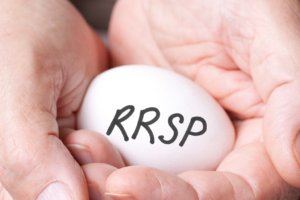
When making a gift to York University as part of your estate plan, consider designating York as a beneficiary of a registered account, such as a tax-free savings account (TFSA), a registered retirement savings plan (RRSP) or a registered retirement income fund (RRIF).
You may be surprised to learn that upon your passing, RRSP and RRIF funds become fully taxable as income to your estate—often at the highest tax rate—unless the funds can be transferred to a surviving spouse or other qualifying dependent beneficiary. Charitable gifts of RRSPs and RRIFs eliminate or greatly reduce the deferred tax burden on these funds at the time of passing, especially if you do not have a beneficiary.
Options
It is easy to name York University as a beneficiary of your retirement plan by simply contacting your plan administrator for a “designation of beneficiary form” or “multiple beneficiary designation form.”
- You can designate York as a beneficiary of the entire amount of the TFSA/RRSP/RRIF, or you can include the University as one of many beneficiaries, specifying the amount or portion of the registered account payable to York.
- In most cases, it is also possible to name York as a “contingent beneficiary,” meaning that York would receive the amount if your named beneficiary or beneficiaries predecease you.
Note: Under current Canadian tax law, RRSPs and RRIFs cannot be transferred directly to a registered charity during
one’s lifetime and still be eligible for a tax receipt. Rules also differ in Quebec, so it is important to contact your plan
administrator for specific details
Benefits
- Gifts of RRSPs/RRIFs/TFSAs often result in a more sizable donation than you may have been able to make during your lifetime.
- You have complete access to use the fund as needed during your lifetime.
- Gifts are revocable and can easily be changed, usually with no cost.
- The charitable gift will generate a tax credit to offset your estate administration tax payable to the Canada Revenue Agency (CRA).
- Your estate will receive a tax receipt for the total value of your gift. It can be claimed against 100% of net income on your final tax return and the preceding year’s return, or for your Estate tax returns.
- Gifts are less likely to be contested than charitable bequests.
